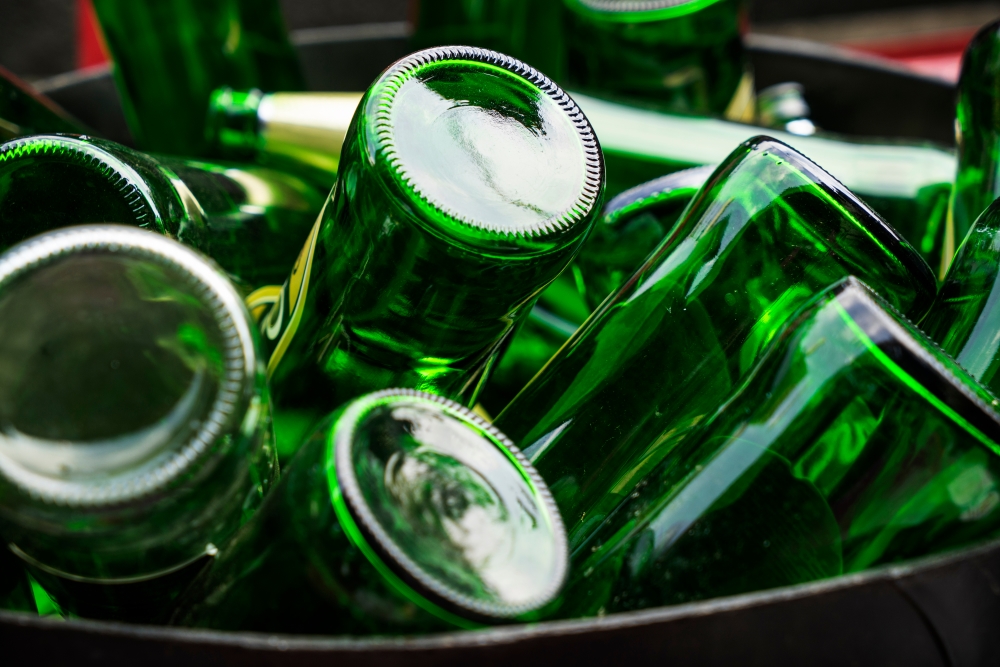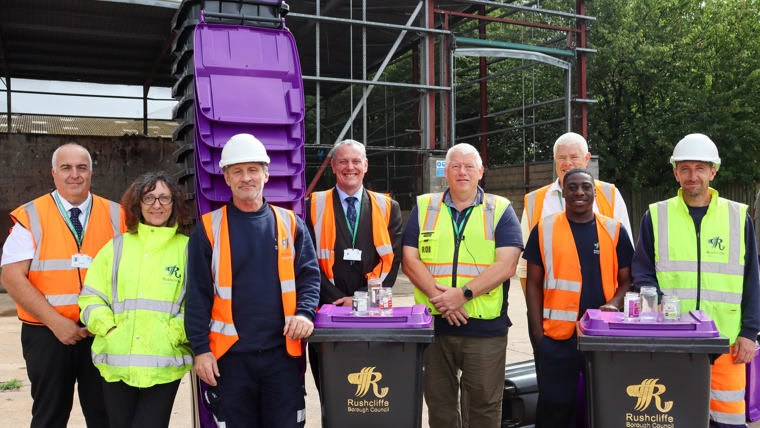Around 1,200 households are participating in the scheme, which began last week and each will be given a 40-litre container to place inside the grey-lidded brown bin, already used to collect recyclables. The plastic insert for storing glass and jars will help keep contamination of other recyclables to a minimum.
Nottingham has ambitious plans for expanding our kerbside recycling services and this glass trial is another step towards achieving the challenging targets we have set ourselves.
Cllr Katrina Bull, Nottingham city council
The council operates a system of three-wheeled bins for waste and recycling collections, which it began rolling out 18 months ago and which 73,000 of the city's 180,000 households now use.
A green bin is used for residual waste, a brown bin for garden waste and a brown bin with a grey lid is used for paper, cardboard, cans, plastic bottles and plastic tubs.
Bins are emptied by the city council on alternate weeks – the green bin is collected one week and the brown bin and grey-lidded brown bin is collected on the second week.
Cllr Katrina Bull, Nottingham's environment portfolio holder, said: “Nottingham has ambitious plans for expanding our kerbside recycling services and this glass trial is another step towards achieving the challenging targets we have set ourselves.
“Areas on the brown bin kerbside collection scheme, achieved an average recycling rate of 45% in first six months of this financial year. This shows an increase in recycling rates when residents have the convenience of recycling brought to their kerbside. We plan to continue expanding kerbside recycling and improving communal facilities so we can well exceed the target of 23% for 2007/2008.”
Figures for 2006/07, released by the Department for Environment, Food and Rural Affairs last month, show the city achieved a recycling/composting rate of 23.7% – up from 22% in 2006/07.
Sorting
The recyclables, including glass, will be collected by the council in a rear-end loader vehicle which has a split compartment – one for glass and the second for all the other material.
The recyclables are taken to the sorting facility operated by waste management firm Wastecycle in Colwick, just outside Nottingham.
Here, the glass is mixed in with other glass collected through the company's commercial recycling arm before being bulked up into 30-tonne containers and sent to West Yorkshire glass reprocessor Berryman to be made into bottles and containers.
The commingled material is sorted in the MRF, which processes around 280,000 tonnes of material each year. Around 10 employees are hired to separate paper, cardboard and plastics by hand, while the metal is sorting using magnets. The separated material is baled and sent to reprocessors.
Wastecycle's plant is divided into two sections – one for sorting commercial and industrial waste while the other is for construction and demolition waste.
The agreement with Nottingham city is one of Wastecycle's first with a local authority and was struck up 18 months ago, when the council rolled-out kerbside collections.
The arrangement was for a trial period only and the council has recently put a contract for a more permanent arrangement out to tender. Wastecycle is one of the firms which submitted a pre-qualification questionnaire and is now waiting to hear if it will be invited to submit a formal bid for the contract.
Wastecycle has also been approved for membership of the Recycling Registration Scheme – the voluntary scheme registering and certifying sorting plants (see letsrecycle.com story).
Auditors Bureau Veritas visited the firm's site in October and recommended approval to the programme which was launched by the Environmental Services Association.






Subscribe for free